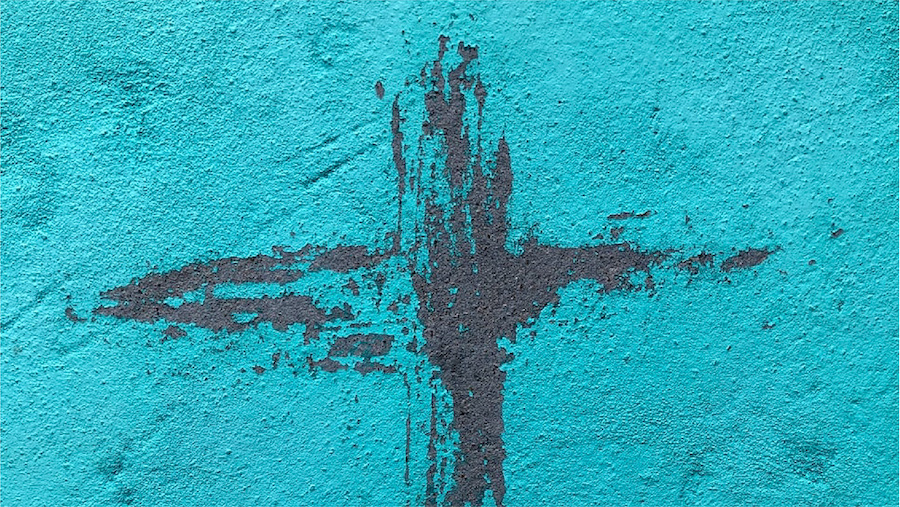The Intercessor | Amos

By Rev. Jeremiah Cheung
From Amos 7:1-9
7:1 This is what the Sovereign Lord showed me: He was preparing swarms of locusts after the king’s share had been harvested and just as the late crops were coming up.
2 When they had stripped the land clean, I cried out, “Sovereign Lord, forgive! How can Jacob survive? He is so small!” 3 So the Lord relented. “This will not happen,” the Lord said.4 This is what the Sovereign Lord showed me: The Sovereign Lord was calling for judgment by fire; it dried up the great deep and devoured the land. 5 Then I cried out, “Sovereign Lord, I beg you, stop! How can Jacob survive? He is so small!” 6 So the Lord relented. “This will not happen either,” the Sovereign Lord said.
7 This is what he showed me: The Lord was standing by a wall that had been built true to plumb, with a plumb line in his hand. 8 And the Lord asked me, “What do you see, Amos?” “A plumb line,” I replied. Then the Lord said, “Look, I am setting a plumb line among my people Israel; I will spare them no longer. 9 “The high places of Isaac will be destroyed and the sanctuaries of Israel will be ruined; with my sword, I will rise against the house of Jeroboam.”
This passage can clearly be divided into three sections. The structure of each section is very similar: First, the Lord shows the prophet something, then the prophet makes a request to God, and the Lord gives an answer.
The first section is Amos 7:1-3.
The Lord showed the prophet a judgment by a plague of locusts. Immediately the prophet prayed to the Lord and interceded for the people, not because the people had not sinned, and not because the people did not deserve such judgment. The prophet reasoned that Jacob would not survive for he was so small. The Lord relented and kept the disaster from happening.
The second section is Amos 7:4-6.
The Lord showed the prophet a judgment of fire. The prophet immediately prayed to God and interceded for the people. Again, it was not because the people had not sinned, nor that they did not deserve such judgment. The prophet’s reason was that Jacob was so small, he would not survive. The Lord relented and kept the disaster from happening.
The third section is Amos 7:7-9.
The Lord showed the prophet a plumbline for judgment, but before the prophet could pray, the Lord said, “I will spare them no longer.” Then He pronounced the judgment that was to happen. Amos 7:9 “The high places of Isaac will be destroyed and the sanctuaries of Israel will be ruined; with my sword, I will rise against the house of Jeroboam.”
This tells us three very important truths:
- When an intercessor comes he will mediate between God and man. He stands in the gap so that God’s judgment may be delayed and people will have a chance to repent. Psalm 106:23 explains it well, “So he said he would destroy them— had not Moses, his chosen one, stood in the breach (stood in the gap) before him to keep his wrath from destroying them.” We must stand in the gap.
- When there is no intercession, the wrath of God will pour down, Ezekiel 22:30 is the best explanation, “I looked for someone among them who would build up the wall and stand before me in the gap on behalf of the land so I would not have to destroy it, but I found no one.”
- Repent quickly when you are given the opportunity, because when opportunity is gone, it may not come again. In the third judgment, the Lord decided not to spare them anymore. Let us not misuse God’s grace as an opportunity to indulge ourselves. Grab hold of the opportunity we have today and return to God quickly!
Previous Post: Living in a Drunken Stupor
代禱者 | 阿摩司書
張國強牧師
阿摩司書 7:1-9
7:1 主耶和華指示我一件事, 為王割菜之後菜又發生, 剛發生的時候,主造蝗蟲。2 蝗蟲喫盡那地的青物, 我就說主耶和華阿, 求你赦免;因為雅各微弱, 他怎能站立得住呢? 3 耶和華就後悔, 說, 這災可以免了。
4 主耶和華又指示我一件事, 他命火來懲罰以色列, 火就吞滅深淵, 險些將地燒滅。5 我就說, 主耶和華阿, 求你止息, 因為雅各微弱, 他怎能站立得住呢? 6 耶和華就後悔說, 這災也可免了。
7 他又指示我一件事, 有一道牆是按準繩建築的, 主手拿準繩站在其上。8 耶和華對我說, 阿摩司阿, 你看見甚麼? 我說, 看見準繩。主說: 我要弔起準繩在我民以色列中, 我必不再寬恕他們, 9 以撒的丘壇必然淒涼, 以色列的聖所必然荒廢, 我必興起, 用刀攻擊耶羅波安的家。
這段經文很明顯可以與為三個段落, 而且每個段落的結構都很相同的; 神先指示先知看一件事, 然後先知就向神發出請求, 最後神就給出一個答案。
第一個段落是7:1-3.
神指示先知看見一個蝗蟲之災的審判, 先知馬上向神禱告, 為百姓代禱, 不是因為百姓沒有犯罪, 不是百姓不應面對這樣的審判, 先知的理由是雅各微弱, 怎能站立得住呢? 神後悔了, 神免了這災。
第二個段落是 7:4-6
神指示先知看見一個火災的審判, 先知馬上向神禱告, 為百姓代禱, 同樣不是因為百姓沒有犯罪, 不是百姓不應面對這樣的審判, 先知的理由是雅各微弱, 怎能站立得住呢? 神後悔了, 神免了這災。
第三個段落是 7:7-9
神指示先知看見一個準繩的審判, 但在先知還沒有禱告之前, 神先說: 我必不再寬恕他們。然後發出審判的內容, 7:9 以撒的丘壇必然淒涼, 以色列的聖所必然荒廢, 我必興起, 用刀攻擊耶羅波安的家。
這告訴我們三個很重要的真理:
- 當代禱者出現的時候, 他會在神與人中間成為中保, 他站在隙縫之中, 使神的審判可以延遲, 使人有悔改的機會。詩篇106:23是最好的解釋 「所以他說要滅絕他們,若非有他所揀選的摩西站在當中〔原文作破口〕使他的忿怒轉消, 恐怕他就滅絕他們。」我們要成為站在破口的人。
- 當沒有代禱出現的時候, 神的忿怒會傾倒下來, 以西結書 22:30是最好的解釋「我在他們中間尋找一人重修牆垣, 在我面前為這國站在破口防堵, 使我不滅絕這國, 卻找不著一個。」
- 要趁有機會快悔改, 因機會失去了不會再來。第三個審判神決定不再寬恕, 我們不要以神的恩成為放縱自己的機會, 把握今天還有的機會, 早早歸向神吧!
